551st Foundation Day at LMU: prizes for early-career researchers
30 Jun 2023
This year, six doctoral graduates and two habilitation graduates are receiving awards from the Munich University Association (Münchener Universitätsgesellschaft).
30 Jun 2023
This year, six doctoral graduates and two habilitation graduates are receiving awards from the Munich University Association (Münchener Universitätsgesellschaft).
Foundation Day affords guests to the university an insight into the broad range of research undertaken at LMU. Supporting early-career research is at the heart of the Foundation Day festivities each year. And so outstanding doctoral and habilitation theses are recognized with Munich University Association awards.
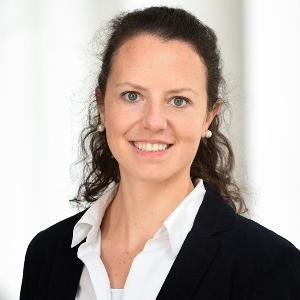
© Privat
Dr. Camila Back, Faculty of Business Administration, has received an award for her thesis “The Behavioral Economics of Digital Customer-Firm Interactions.”
In her dissertation, Camila Back investigates how the digitalization of customer-firm interactions impacts customer behavior. Her research focus lies on automated forms of digital interactions such as chatbots or recommender systems, which make it easier for customers to obtain information relevant to their purchase. Back studied the extent to which new forms of digital interactions improve (or worsen) the quality of consumers’ decisions and ultimately how they affect customer satisfaction. The underlying theoretical framework is based on behavioral economics, a field of study at the interface of psychology and economics.
Camila Back currently works as a manager in the Business to Partners (B2P) division at Telefónica Germany GmbH & Co. OHG.
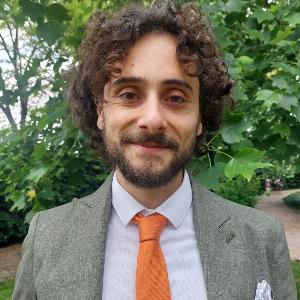
© Privat
Dr. Angelo Caravano, Faculty of Physics, is receiving an award for his thesis “Simulating the inflationary Universe: from single-field to the axion U(1) model.”
On the vast scales that extend across the observable Universe, galaxies join together to form what is known as the large-scale structure. How did this structure form? According to current theory, microscopic quantum fluctuations immediately after the Big Bang, which expanded to macroscopic scales during the so-called inflationary phase in the first tiny fraction of a second, are responsible for this structure. For a long time, this early phase could only be described using analytical, mathematical approximation methods. Now, in his dissertation, Angelo Caravano has for the first time precisely calculated the statistical distribution of the initial fluctuations with the help of comprehensive computer simulations. His novel approach successfully transfers methods from particle physics, so-called lattice simulations, to the early universe. Caravano’s simulations provide precise predictions that can be matched with astrophysical observations and are already being used to interpret data from satellite missions.
Angelo Caravano is currently doing postdoctoral research both in Prof. Jochen Weller’s group at LMU and in Eiichiro Komatsu’s group at the Max Planck Institute for Astrophysics.
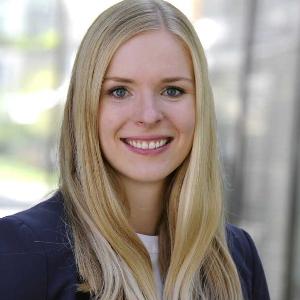
© Privat
Dr. Carola Focke, Faculty of Medicine, has been granted a doctoral award by the Munich University Association (MUG) for her dissertation, “Neuroinflammation and its predictive impact on cognitive performance in Alzheimer’s mouse model.”
Immune cells in the brain of Alzheimer’s patients can have both protective and detrimental effects. Therefore, it is important to better understand the inflammatory response in the brain – the so-called neuroinflammation. In her dissertation, Carola Focke has made a substantial contribution using imaging techniques. In a mouse model, she has demonstrated that glucose metabolism and the activity of immune cells in the brain during physiological aging are closely connected. Furthermore, Focke has shown in a longitudinal study that neuroinflammation correlated significantly with subsequent cognitive performance. These findings emphasize the important role of neuroinflammation in the pathophysiology of Alzheimer’s disease and open up new diagnostic and therapeutic possibilities.
Carola Focke works currently as a clinical scientist in the Department of General and Visceral Surgery at the Medical Center – University of Freiburg.
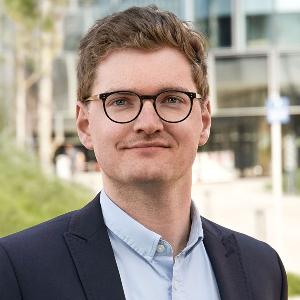
© Meta Platforms, Inc.
Dr. Cornelius Fritz, Faculty of Mathematics, has been granted a doctoral award by the Munich University Association (MUG) for his dissertation, “Statistical approaches to dynamic networks in society,” for which he graduated summa cum laude.
When many people interact with each other, these relationships are not necessarily independent of each other, but often highly complex. This makes them particularly challenging to statistically analyze. In his dissertation, Cornelius Fritz investigated such dynamic networks in the social sciences. In the course of the thesis, he published a total of 13 scientific papers in the fields of statistics, network science, statistics software, and political sciences. He was a member of the COVID-19 Data Analysis Group (CODAG @ LMU), where he made important scientific contributions during the coronavirus pandemic. For instance, he quantified how particular mobility patterns led to a reduction in infections. In addition, he demonstrated empirically in April 2021 that schools were not drivers of transmission.
Cornelius Fritz currently works as a postdoctoral fellow in the Department for Statistics at Pennsylvania State University.

© hansherbigphotography
Dr. Maurice Fürstenberg (né Hüttemann), Faculty of Languages and Literatures, is receiving an award for his thesis “Comma skills in comparison. An empirical study of how school students place commas in their own and given texts.”
How good are school students at comma placement? And does it make a difference if they have to put the punctuation marks in their own texts or insert them into texts written by other people? In his dissertation, Maurice Hüttemann investigated these questions in a study of around 650 children in classes 8 and 9 at German academic high schools. He discovered there was a weak correlation between the ability to correctly place commas in students’ own texts and in texts written by others. This calls into question the validity of standardized methods of testing the ability of schoolchildren, at least when it comes to comma placement. The study also found that putting commas in the wrong place was not the issue for many students so much as not placing them in instances where they were needed.
Maurice Fürstenberg is currently a student teacher of German and physical education at an academic high school in Schweinfurt.
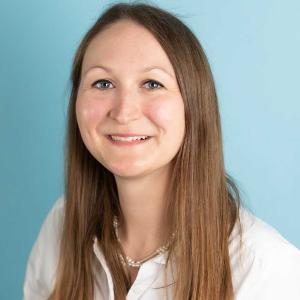
© Privat
Dr. Theresa Steeb, Faculty of Medicine, has been granted a doctoral award by the Munich University Association (MUG) for her dissertation, “Evidence-based and patient-centered treatment decisions for actinic keratosis.”
Actinic keratoses are common precancerous lesions of the skin in fair-skin individuals. To prevent actinic keratosis from progressing into cancer, various treatment methods are available. Although these methods are often combined to increase efficiency, there have been few validated findings about these modified treatments to date. To improve decision-making, Theresa Steeb performed a systematic literature research in her dissertation and conducted a meta-analysis on the efficacy of combination treatments to identify particularly effective methods. In addition, she identified the German S3 guideline on the treatment of actinic keratosis as the best guideline worldwide. As a result of her dissertation, we now have scientific evidence for various combination therapies, which have been incorporated into this guideline and therefore have direct consequences for therapeutic dermatological practice.
Theresa Steeb currently works as a medical advisor for the pharmaceutical company Exeltis Germany GmbH in the municipality of Ismaning near Munich.
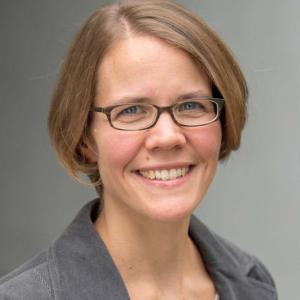
© Privat
PD Dr. Eva Oberloskamp, Faculty of History and the Arts, is receiving a habilitation award for her thesis “Energy, environment, market. Discourses and political action in the Federal Republic of Germany and the United Kingdom in the 1970s and 1980s.”
The energy transition is a phrase that marks our current moment. But the discussion around energy transition is not the first of its kind. It has a pre-history that begins with a cesura in the early 1970s. In her habilitation thesis, Eva Oberloskamp investigated the energy and environmental debates between 1970 and 1990. Her comparison of discourses and political action in the old Federal Republic of Germany and in the United Kingdom reveals similarities, but also fundamental differences, such as in coal and nuclear policies. The author traces how different path dependencies developed in the two countries in the attempt to balance economics and ecology, growth and resource conservation. Both countries, she found, tended to have quite similar carbon footprints in their energy sectors. Overall, despite all their differences, both countries adopted a “modernization course marrying ecology with liberal free-market economics” as opposed to classical pro-growth or growth-critical paths.
Eva Oberloskamp works at the Leibniz Institute for Contemporary History, where she is academic director of the research unit dedicated to reappraising the 1972 attack on the Israeli Olympics team.
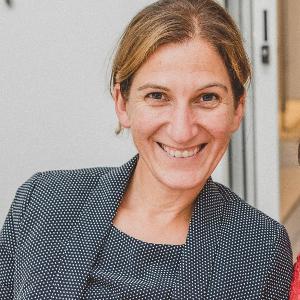
© Privat
PD Dr. Susanne Zöls, Faculty of Veterinary Medicine, has been granted a habilitation award by the Munich University Association (MUG) for her dissertation, “Alternatives to piglet castration without anesthetic.”
Castrating male piglets without anesthetic has been banned in Germany since 2021 for animal welfare reasons. The prohibition has raised as-yet unsettled questions as to how commerce and politics should handle this issue in the future. Susanne Zöls addresses these questions in her work. In the course of her cumulative habilitation thesis, she has carried out various studies looking at different options – such as the choice of suitable anesthetics or the possibility of avoiding surgery altogether. Her studies also include clear recommendations for action as regards political implementation. In this way, Zöls is making a significant contribution to animal welfare and improved husbandry conditions for one of the most important farm animals in German agriculture.
Susanne Zöls works as a senior lecturer (Akademische Oberrätin) at the Chair of Internal Medicine for Pigs and is a veterinary specialist at the Clinic for Pigs at LMU.